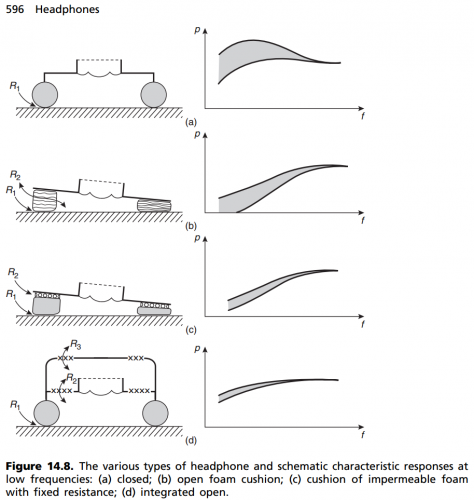castleofargh
Sound Science Forum Moderator
- Joined
- Jul 2, 2011
- Posts
- 10,423
- Likes
- 6,034
before we fall into the usual extremism for no reason:
1/ an audio signal is amplitude over time and nothing more. that's how it is defined as an analog electrical signal, and how it is defined as an acoustic signal at a given position in space. and I'm unaware of anything conflicting with those models. so chances are we're onto something here. it's also how we record sounds, so if there is more to audio, well sucks to be us.
we double that for stereo and that's the end of it. why would there be anything mysterious within a signal content? people mistake the hard time we have diagnosing the cause of a subjective feeling, with having a hard time knowing what the signal is. or maybe they imagine that because a FR graph doesn't tell them the time of the day, then measurements lack too much information. but the first issue is about the chaos that is a human mind, while the second is simply a matter of using the right measurement to look at the right variable. none are caused by lack of information about the signal itself.
with my cheap gears I can measure stuff at 96khz and down to -90dB with fairly good confidence, and slightly better so long as I spend some time adjusting the gain correctly and the source is close to the nominal output for the job. that alone is enough to check a good deal of things, and I'm only talking cheap ADC for poor musicians, not Audio Precision kind of gear.
of course if we start saying that people can notice the change in transient from above 30khz content, or that stuff at -150dB audibly impact the soundstage, then my argument doesn't hold. but as I'm not aware of any test demonstrating those stuff as audible, for the moment I stick to my point.
2/ when someone suggests some DACs can be audibly different under test, he doesn't claim that all DACs sound night and day different, so let's hold our horses. @Allanmarcus didn't even try to suggest such a thing.
on the other hand, when someone suggest that all DACs sound the same, he's just wrong. no need to fight that at all. extremism shouldn't be allowed in here or anywhere else.
I can think of many reasons why a perfectly fine DAC could end up sounding different with the right kind of test and the right circumstances. I'd count most of those as irrelevant for typical audio use, or maybe even faulty use of the gears, but there is not a single doubt in my mind that they exist and can be replicated.
1/ an audio signal is amplitude over time and nothing more. that's how it is defined as an analog electrical signal, and how it is defined as an acoustic signal at a given position in space. and I'm unaware of anything conflicting with those models. so chances are we're onto something here. it's also how we record sounds, so if there is more to audio, well sucks to be us.
we double that for stereo and that's the end of it. why would there be anything mysterious within a signal content? people mistake the hard time we have diagnosing the cause of a subjective feeling, with having a hard time knowing what the signal is. or maybe they imagine that because a FR graph doesn't tell them the time of the day, then measurements lack too much information. but the first issue is about the chaos that is a human mind, while the second is simply a matter of using the right measurement to look at the right variable. none are caused by lack of information about the signal itself.
with my cheap gears I can measure stuff at 96khz and down to -90dB with fairly good confidence, and slightly better so long as I spend some time adjusting the gain correctly and the source is close to the nominal output for the job. that alone is enough to check a good deal of things, and I'm only talking cheap ADC for poor musicians, not Audio Precision kind of gear.
of course if we start saying that people can notice the change in transient from above 30khz content, or that stuff at -150dB audibly impact the soundstage, then my argument doesn't hold. but as I'm not aware of any test demonstrating those stuff as audible, for the moment I stick to my point.
2/ when someone suggests some DACs can be audibly different under test, he doesn't claim that all DACs sound night and day different, so let's hold our horses. @Allanmarcus didn't even try to suggest such a thing.
on the other hand, when someone suggest that all DACs sound the same, he's just wrong. no need to fight that at all. extremism shouldn't be allowed in here or anywhere else.
I can think of many reasons why a perfectly fine DAC could end up sounding different with the right kind of test and the right circumstances. I'd count most of those as irrelevant for typical audio use, or maybe even faulty use of the gears, but there is not a single doubt in my mind that they exist and can be replicated.















![20170926_002750[1].jpg](https://cdn.head-fi.org/a/10005832_thumb.jpg)










